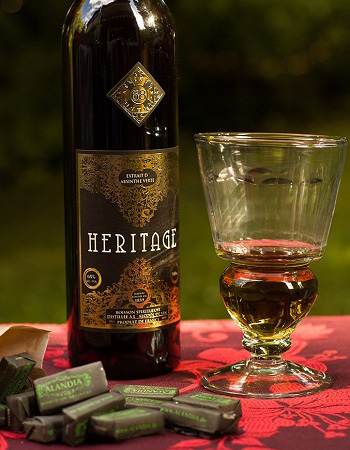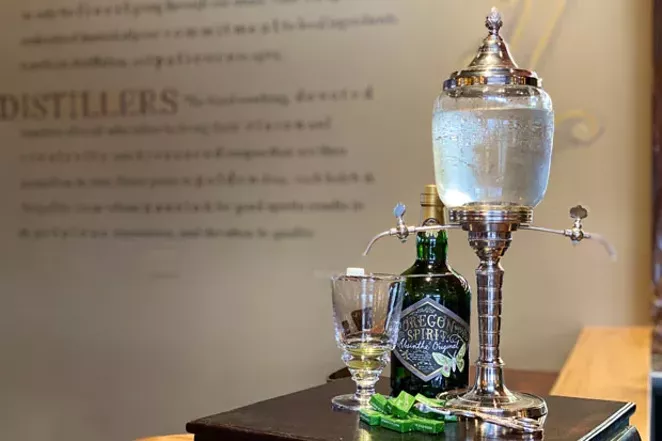

Absinthe is derived from the Latin absinthium, which in turn comes from the Greek ἀψίνθιον apsínthion, "wormwood". The French word absinthe can refer either to the alcoholic beverage, or less commonly, to the actual wormwood plant. By the early 21st century, nearly 200 brands of absinthe were being produced in a dozen countries, most notably in France, Switzerland, Austria, Germany, the Netherlands, Spain, and the Czech Republic.Īlbert Maignan's Green Muse (1895): A poet succumbs to the Green Fairy Ī revival of absinthe began in the 1990s, following the adoption of modern European Union food and beverage laws that removed long-standing barriers to its production and sale. Recent studies have shown that absinthe's psychoactive properties (apart from those attributable to alcohol) have been exaggerated. By 1915, absinthe had been banned in the United States and in much of Europe, including France, the Netherlands, Belgium, Switzerland, and Austria-Hungary, yet it has not been demonstrated to be any more dangerous than ordinary spirits. The chemical compound thujone, which is present in the spirit in trace amounts, was blamed for its alleged harmful effects. Ībsinthe has often been portrayed as a dangerously addictive psychoactive drug and hallucinogen. From Europe and the Americas, notable absinthe drinkers included Ernest Hemingway, James Joyce, Lewis Carroll, Charles Baudelaire, Paul Verlaine, Arthur Rimbaud, Henri de Toulouse-Lautrec, Amedeo Modigliani, Pablo Picasso, Vincent van Gogh, Oscar Wilde, Marcel Proust, Aleister Crowley, Erik Satie, Edgar Allan Poe, Lord Byron, and Alfred Jarry. The consumption of absinthe was opposed by social conservatives and prohibitionists, partly due to its association with bohemian culture. It rose to great popularity as an alcoholic drink in late 19th- and early 20th-century France, particularly among Parisian artists and writers. Absinthe is traditionally bottled at a high level of alcohol by volume, but it is normally diluted with water before being consumed.Ībsinthe originated in the canton of Neuchâtel in Switzerland in the late 18th century. It is sometimes mistakenly referred to as a liqueur, but is not traditionally bottled with added sugar, so is classified as a spirit. It is commonly referred to in historical literature as la fée verte ("the green fairy"). Absinthe traditionally has a natural green color but may also be colorless. Historically described as a highly alcoholic spirit, it is 45–74% ABV or 90–148 proof US. Most absinthe generally hovers around 120 proof, which is four (or more times) the amount in a glass of red wine.Absinthe ( / ˈ æ b s ɪ n θ, - s æ̃ θ/, French: ( listen)) is an anise-flavoured spirit derived from several plants, including the flowers and leaves of Artemisia absinthium ("grand wormwood"), together with green anise, sweet fennel, and other medicinal and culinary herbs.

Tasting Table asserts it may be possible people have hallucinated when drinking absinthe, but that is likely from the incredibly high alcohol content contained within the chartreuse liquid. Wormwood contains thujone, which is a compound that can make you hallucinate - but only in extremely high quantities that are not present in absinthe. It was caused in part by the presence of wormwood as one of absinthe's main ingredients.

According to Tasting Table, this myth is simply not true.

One of the most widespread myths about absinthe is that drinking it will make you hallucinate. While many people believe absinthe to be naturally green, the liquid is actually clear until the final step of production, when absinthe makers add in more herbs to give the liquid its infamous green color. The distiller then takes the pure alcohol and botanical oil mixture and dilutes it to a drinkable proof. This process causes the alcohol and oils to separate, leaving behind the water and any bitter flavors imparted by the herbs. How Stuff Works states that to make absinthe, you must first soak the herbs mentioned above in alcohol and distill the mixture.


 0 kommentar(er)
0 kommentar(er)
